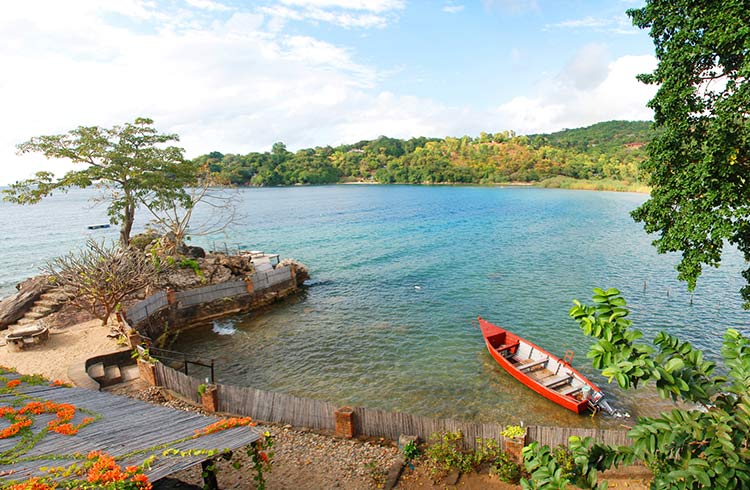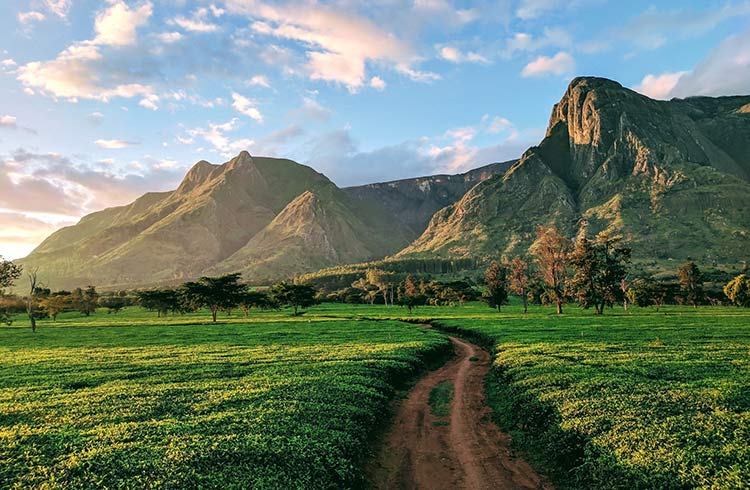Tips on Local Laws and Customs for Travelers in Malawi
Find out about Malawi's laws and customs around homosexuality, personal space, gender equality and drugs before you go.
 Photo © Getty Images/Verónica Paradinas Duro
Photo © Getty Images/Verónica Paradinas Duro
Politics in Malawi
Since 1969, Malawi has operated under two parallel court systems; the first based on the legal system prevalent in the United Kingdom, the second based on traditional African courts. The latter were authourized by the president to try all types of criminal cases and to impose the death penalty. The president was also permitted to deny the right of appeal to the High Court against sentences passed by the traditional courts, a right formerly guaranteed by the constitution.
The constitution provides for an independent judiciary. This important provision is respected in practice. Defendants have the right to public trial, to an attorney, to challenge evidence and witnesses, and to appeal.
Forget about personal space
In Malawi, although the sense of personal space differs from place to place based on tribal and religious influences, people tend to speak to each other at close range; an arm's length is considered appropriate.
Personal space tends to be smaller for people of the same gender, and greater for opposite genders. It is common for men to touch each other when speaking, and also common to see two men walking hand-in-hand in public. Women do the same, too.
This close contact is a sign of friendship or closeness, and is not an implication of their sexual preferences.
Homosexuality is taboo
Despite these open attitudes to physical closeness, homosexuality is a taboo subject in Malawi. Homosexuality is still illegal here, and in 2018 a report by Human Rights Watch discovered that members of the LGBTQ+ community could be arrested and experience discrimination. For the safety of the LGBTQ+ community in Malawi, their report recommends same-sex consensual activity should be decriminalised by the government to protect these communities.
If you are traveling here with your partner, it's best to be discreet with public displays of affection.
Gender inequality in Malawi
Despite the pursuit of gender equality, gender inequality is a fact of life in Malawi. Women are not considered equal to men – whether in villages where they do the bulk of work in the home and fields, or in cities where they are employed or work in the home.
In Malawi, it is considered inappropriate for women to show their knees in public. It is not acceptable for women to drink or smoke. Generally, men don't wear shorts and women don't wear trousers. Although dress is more casual in urban environments, travelers are advised to dress more formally than you might have imagined.
A tourism brochure notes: "Under the rule of Dr Banda there were numerous restrictions in place, however these days these have been relaxed. Ladies may wear trousers and men may have long hair. At the lakeshore resorts beach wear is allowed, however when visiting rural areas it is advisable to cover up so as not to cause offense. The country is fairly conservative."
What does this mean for travelers?
Here are a few etiquette tips – and important rules – for travelers to follow while visiting Malawi.
- Women traveling to Malawi should be careful how they present themselves. In the villages, women who drink and smoke and reveal their knees in public are considered prostitutes. Although most local men will make allowances based on the fact that foreign women come from a different culture, such behavior may draw unwanted attention
- Importing recreational drugs is illegal. Recreational drug use, including cannabis, is also illegal. Anyone convicted will face stiff penalties including lengthy imprisonment in local gaols. Medication may only be imported in its original packaging, accompanied by a prescription or medical certificate from your doctor
- It is illegal to import pornographic material, counterfeit items, explosives, endangered species or any product made from an endagered species – including ivory
- In many parts of the world, there are bans on photographing any building or site with security overtones. In Malawi, it's best to ask for permission before photographing public buildings or anyone in uniform
- Contrary to the advice you may find on many travel blogs, it is not illegal to photograph places of worship in Malawi
- A lot of misunderstandings date from the period of one-party rule under Malawi's first president Dr. Hastings Kamuzu Banda. One of Banda's official residences was State House, a historic building dating from the period of British colonial rule. During his presidency, it was closed to the public and for obvious security reasons, any form of photography in the immediate vicinity was not permitted
- It's common courtesy to ask for permission before you photograph any local people. How would you feel if someone stuck a camera in your face?
Have you been to Malawi? Share your tips below!
Related articles
Simple and flexible travel insurance
You can buy at home or while traveling, and claim online from anywhere in the world. With 150+ adventure activities covered and 24/7 emergency assistance.
Get a quote
No Comments